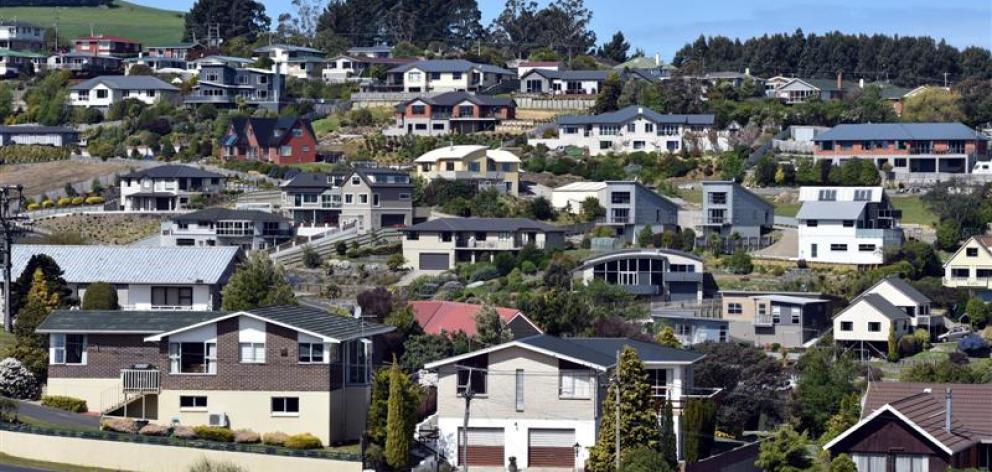
The market has typically been described as stable after the latest valuations were released by Quotable Value, showing little movement overall since 2022.
Nidd Realty owner Joe Nidd said some buyers in Dunedin had been cautious in recent years, but confidence was returning.
He had noticed much more competition among house buyers around the middle of the market, and more unconditional offers.
“And the upper end of the market has shown a real invigoration in the past two to three months,” Mr Nidd said.
Lower interest rates were key, he said.
Last month, the Reserve Bank cut the official cash rate by 50 basis points, reducing it to 2.5%, making borrowing more affordable.
Quotable Value said the average home in Dunedin was worth $664,651, down 2.63% on three years ago.
Its updated valuations reflected the likely price a property would have sold for on June 1 this year, excluding chattels.
Mr Nidd said the market had been steady in the past three years.
There had not been significant increases in prices since June, but there was more buyer interest and activity, as well as more stock to choose from, he said.
LJ Hooker Dunedin managing director Jason Hynes said cities such as Auckland and Wellington had some dramatic declines in the value of property.
“So I’d actually say Dunedin would be one of the more stable main centres in the country over the last three years,” he said.
Mr Hynes agreed buyer confidence seemed to be improving.
Sentiment had moved in the second half of this year, he said.
Mr Hynes said lower interest rates had a bearing at every price point.
Buyers had recognised now could be a good time to acquire property, he said.
TGC Homes director George Hercus said he had observed a two-tier market.
Dunedin had a shortage of homes that were double-glazed, well insulated, warm and dry, and those homes were at a premium for purchase price and rent, he said.
Mr Hercus said the value of the company’s modern townhouses had remained stable.
He expected some of the city’s older stock would fare less well.
Blue Sky Property Group director Lyndon Fairbairn said townhouse developments had held their value.
“There’s quite a demand, particularly for owner-occupier, smaller townhouse, low-maintenance homes,” he said.
The Dunedin City Council’s policy relating to testing soil for lead around older homes was affecting development costs, he said.
The council’s stance has been called overly cautious and out of step with the rest of New Zealand.
Quotable Value said Dunedin’s industrial property was worth 4.3% more on average than in 2022, and the value of commercial property increased by 1.2%.
City councillor Andrew Simms said there had been a sustained period of low growth in Dunedin and interest rates had previously been high.
The updated residential property valuations reflected subdued demand, he said.
Cr Simms said, on the other hand, there was a shortage of industrial land available.
“The development of the inland port at North Taieri represents a significant opportunity for Dunedin and for Otago, but we must have the land availability and infrastructure to maximise this opportunity.”
grant.miller@odt.co.nz
